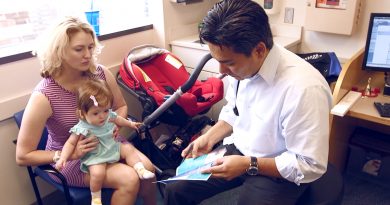A memo to my younger self: Fellowship 101
Memo: Your clinical ethics fellowship
Date: 10/11/2019
To: Trevor Bibler, clinical ethics fellow
From: Trevor Bibler, clinical ethicist
Hey! Congrats on the new job. You are going to be the first clinical ethics fellow at Baylor College of Medicine and Houston Methodist Hospital. You start early tomorrow. Yes, even before the sun comes up in Houston, in July – it is going to be hot. But I know you are nervous, so I wanted to write a quick memo on what to expect – and not expect – when you move forward with the fellowship.
Expect to become a much better clinical ethicist, scholar, and teacher. Your improvements in these areas will not come as quickly as you might hope, but they will come. Your initial reaction to many clinical questions and scene of conflict will be one of confusion, but with experience and effort you will become better at discerning ethics issues and how you can assist in addressing them. Murky and complicating issues will become clearer, quicker.
The unexpected part of this process is how many mistakes you will make along the way. Both major and minor mistakes are part of the process. Every mistake will feel consequential. You will miss important phrases bedside nurses say; you will move too fast in your ethical analysis; you will push patients and families too much when trying to move a case forward. Other ethicists make these same errors. Even now you make mistakes. But this is part of improving, and you will get better.

Unexpectedly, you will become a different kind of scholar. You will find serious scholarship outside of books published by university presses and medical journals with double-digit impact factors. Although you don’t find much value in them now, you will realize that ethicists and healthcare professionals find short commentaries on important ethics issues both digestible and effective.
Also, you will become a collaborative researcher. Hard to believe, I know. Your colleagues will make you a better thinker, researcher, and writer. Your writing will continue to be amorphous and overwrought (see, this memo), but working with others will make your work better.
Expect to become a more flexible teacher. You have taught theology students in seminars settings. You will now teach on wildly different topics to a much more diverse audience.
Not to put too much pressure on you, but in a few months, you will be in front of about 100 transplant surgeons, nurses, and other healthcare professionals discussing the ethics of new kidney allocation standards. You will even be using a PowerPoint presentation with lighthearted, low-resolution clip art.
That’s a lot to take in. You will come to realize that being a teacher requires prioritizing the educational experience of the participants over your own hang-ups about how people ought to learn.
Expect to learn to appreciate Houston. You will find it an impressive city that rewards you when you push yourself to do new things. You will find pockets of the city that make you feel at home. Unexpectedly, you will become a vegetarian despite being in Texas and your previous love of brisket.
My point is that it is fine to be nervous. You will be stretched in numerous ways: as a clinician, scholar, teacher, and person. You will become a better professional and better person during the fellowship. You will become less self-serious and reserved. You will, eventually, even go so far as to write a blog post about your experience. But don’t worry, you won’t do something that extreme until after the fellowship.
Best of luck, past-Trevor.
Interested in becoming a clinical ethics fellow? Learn more about the Clinical Ethics Fellowship at Baylor College of Medicine.
–By Trevor Bibler, Ph.D., assistant professor of medical ethics at the Center for Medical Ethics and Health Policy at Baylor College of Medicine



